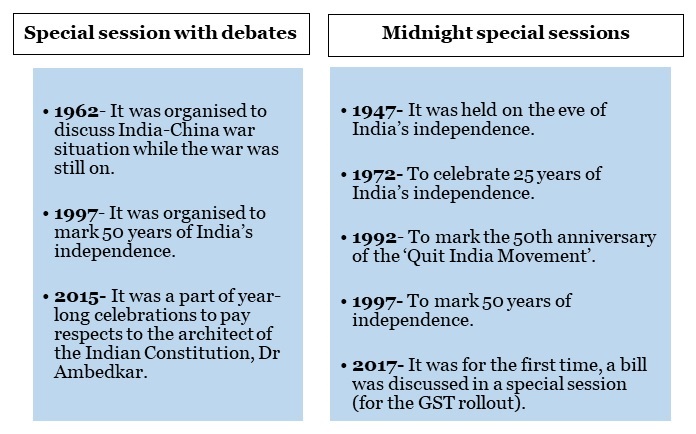7667766266
enquiry@shankarias.in
The Union Minister for Parliamentary Affairs, announced that a “special session” of Parliament would be held in September 2023.
|
Lok Sabha and Rajya Sabha Meeting |
|
The Constitution does not use the term “special session”.
Article 85(1) states that “The President shall from time to time summon each House of Parliament to meet at such time and place as he/she thinks fit”

References